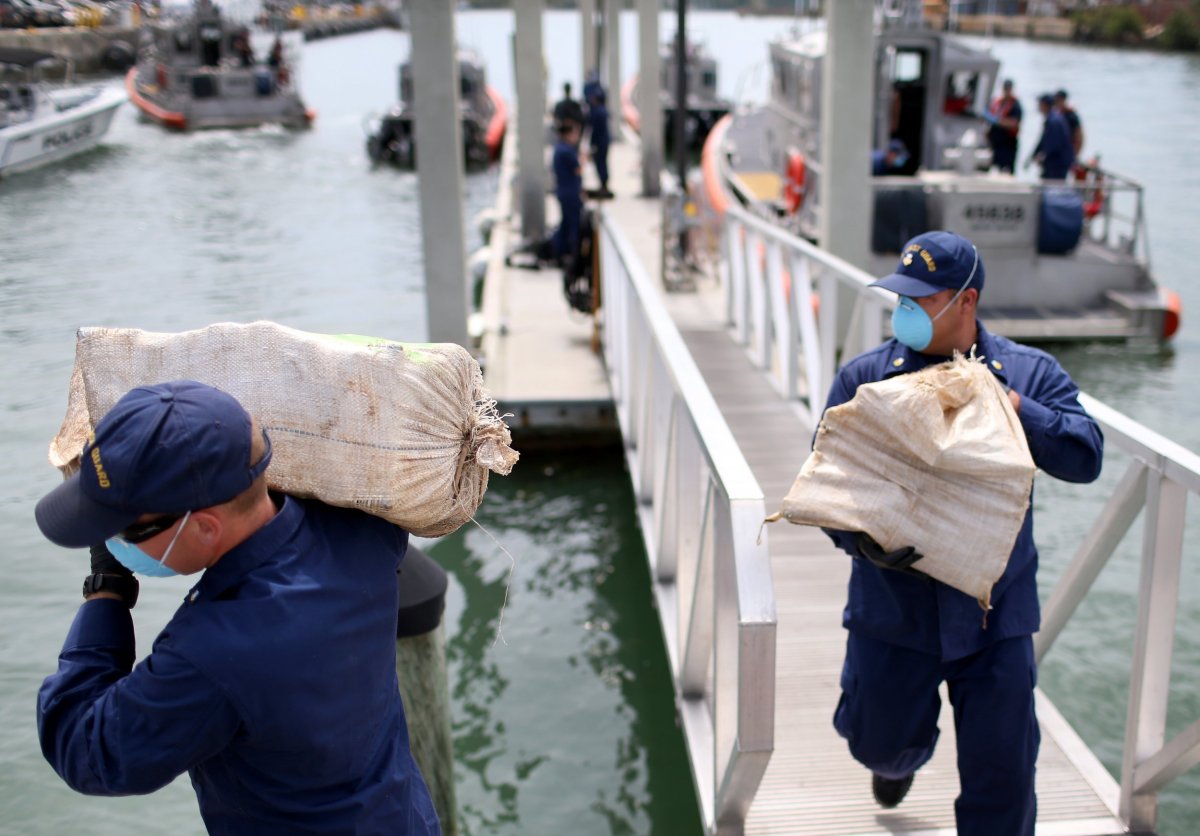This article first appeared on the Cato Institute site.
With television cameras rolling and Attorney General Jeff Sessions on hand in San Diego, the Coast Guard announced late last month that it had set a new record for cocaine seizures at sea—more than 455,000 pounds through September 11, topping last year's record.
At last we've turned the corner in the war on drugs. Right?
Don't bet on it. When Americans read about ever-larger drug busts, or when we watch television shows about drug enforcement, we get the impression that drug enforcement agents are clever and innovative, always staying one step ahead of the sinister pushers. But in reality the drug distributors are the innovative ones—because they have a financial incentive to be.
That's why we keep reading the same story.
In 2015 the Coast Guard announced the largest submarine drug bust ever, $181 million worth of cocaine.
In 2001 a Coast Guard crew seized more than 13 tons of cocaine in what authorities called "the largest cocaine seizure in U.S. maritime history."
Back in 1998 Attorney General Janet Reno and Treasury Secretary Robert E. Rubin announced more than 100 indictments and the seizure of some $150 million from Mexican banks, representing a successful conclusion to "the largest, most comprehensive drug money laundering case in history."
Indeed, it seems that not a week goes by without a report of "one of the biggest drug busts in Utah's history," "Brooklyn's biggest drug bust in history," "one of the biggest drug busts in New York City history," "the largest drug bust ever in the United States outside of Florida," or—drum roll, please—" the largest drug bust in history." Visit CBSNews.com for pictures of "17 massive drug busts."

Law enforcement agents and journalists love those stories—they publicize the "success" of the war on drugs, and they offer the journalists great visuals and great numbers. Helpful police flacks always provide some sexy dollar figures—cocaine or heroin or meth with a street value of $3.3 million, $20 million, $73 million, $2 billion, $4 billion.
This has been going on forever. In a 1991 San Francisco case, billed as the biggest heroin bust ever, television cameras panned over 59 boxes containing 1,080 pounds of heroin—enough to supply each of the country's estimated 500,000 heroin addicts for a month. Drug war officials said the street value of the heroin was $2.7 billion to $4 billion.
It's true that the drug warriors are interdicting more drugs at our borders all the time. Seizures of cocaine have risen dramatically since President Ronald Reagan revved up the drug war in the 1980s. But does that indicate success?
More likely, it means that more drugs are crossing our borders, and officials are interdicting about the same percentage as before. The street prices of cocaine and heroin have been falling for years, a pretty good indication that plenty of both are still crossing our borders.
As Mark A. R. Kleiman, a leading drug policy scholar, said back in 1991 about the California raid, "For any shipment like this that you catch, you can assume that many more get through."
Kleiman has a point. Drug distributors have to stay one step ahead of the cops in order to stay in business.
The Drug Enforcement Agency and other law enforcement organizations are bureaucracies, and like all bureaucracies they tend to be inefficient. Police officers and drug agents are paid whether they slow drug traffic or not. In fact, they may receive more funding if the drug problem gets worse.
Drug dealers, on the other hand, are entrepreneurs. If they outwit the officers, they make big money. That economic incentive spurs creativity, innovation, and efficiency.
When the Supreme Court in 1989 approved surveillance flights over private property to search for marijuana fields, marijuana growers began moving indoors and underground.
Every week brings reports of innovations in drug smuggling: people who swallow heroin and carry it into the United States in their stomachs; drugs placed in the luggage of unaccompanied children on international flights; cocaine implanted in a passenger's thighs ; liquid cocaine ; cocaine chemically modified to be odorless and pliable ; tunnels, drones, and catapults to get across the U.S.-Mexican border—and those are just the methods police have discovered.
Around the world, drug enforcers face what Ethan Nadelmann of the Drug Policy Alliance calls the "push-down/pop-up factor": push down drug production in one country, and it will pop up in another.
Since the stepped-up drug war in the 1980s, drugs have flowed into the American market at different times from Turkey, Mexico, Burma, Afghanistan, Colombia, Peru, and other places. As long as Americans want to use drugs, and are willing to defy the law and pay high prices to do so, drug busts are futile. Other profit-seeking smugglers and dealers will always be ready to step in and take the place of those arrested.
"We've cut off the head of the dragon," said Robert Bender, head of the DEA's San Francisco office, in announcing that heroin bust back in 1991.
But in the decades since, the DEA has discovered that it had cut off the head, not of a dragon, but of a Hydra—the nine-headed monster in Greek mythology that couldn't be killed because whenever one of its heads was cut off, two more grew to replace it. Is there any reason to hope that this latest Coast Guard triumph will be any different?
David Boaz is the executive vice president of the Cato Institute and the author of The Libertarian Mind: A Manifesto for Freedom and the editor of The Libertarian Reader.
Uncommon Knowledge
Newsweek is committed to challenging conventional wisdom and finding connections in the search for common ground.
Newsweek is committed to challenging conventional wisdom and finding connections in the search for common ground.
About the writer
To read how Newsweek uses AI as a newsroom tool, Click here.






